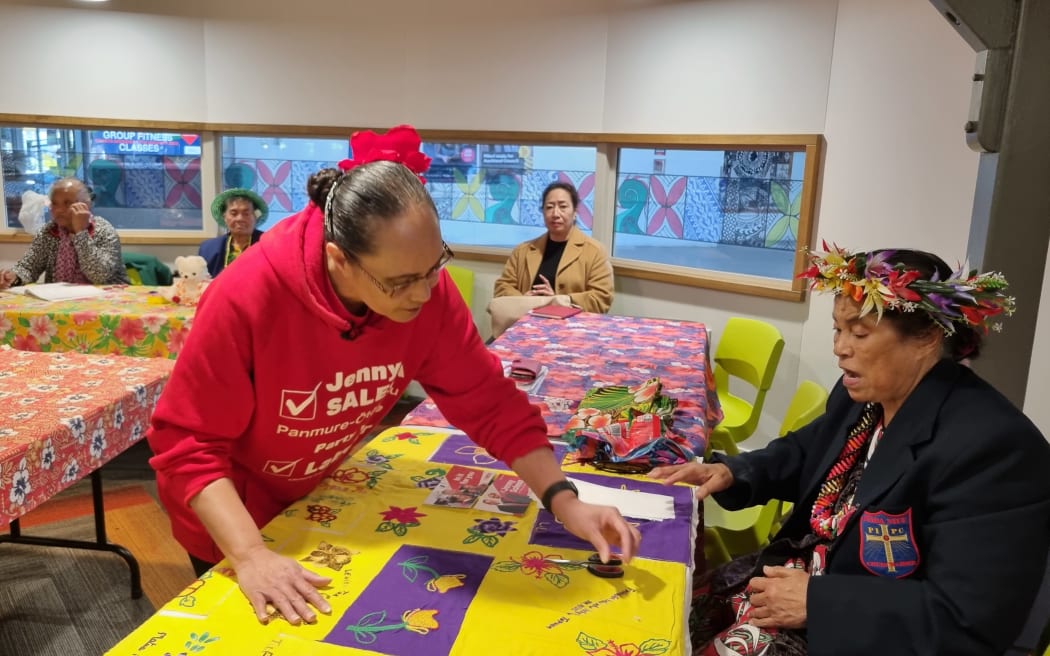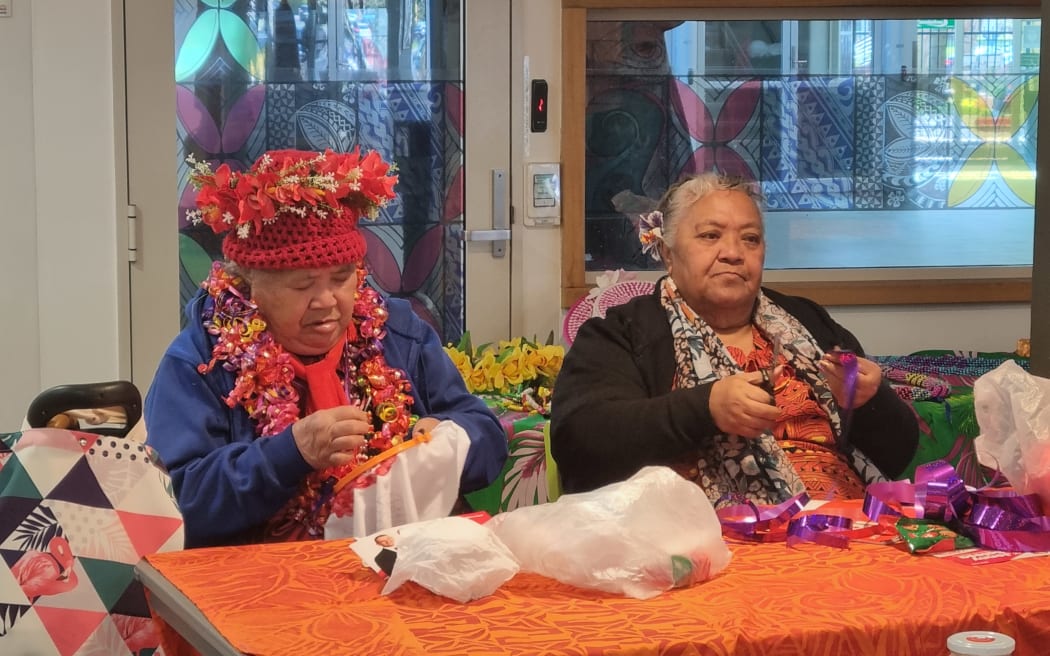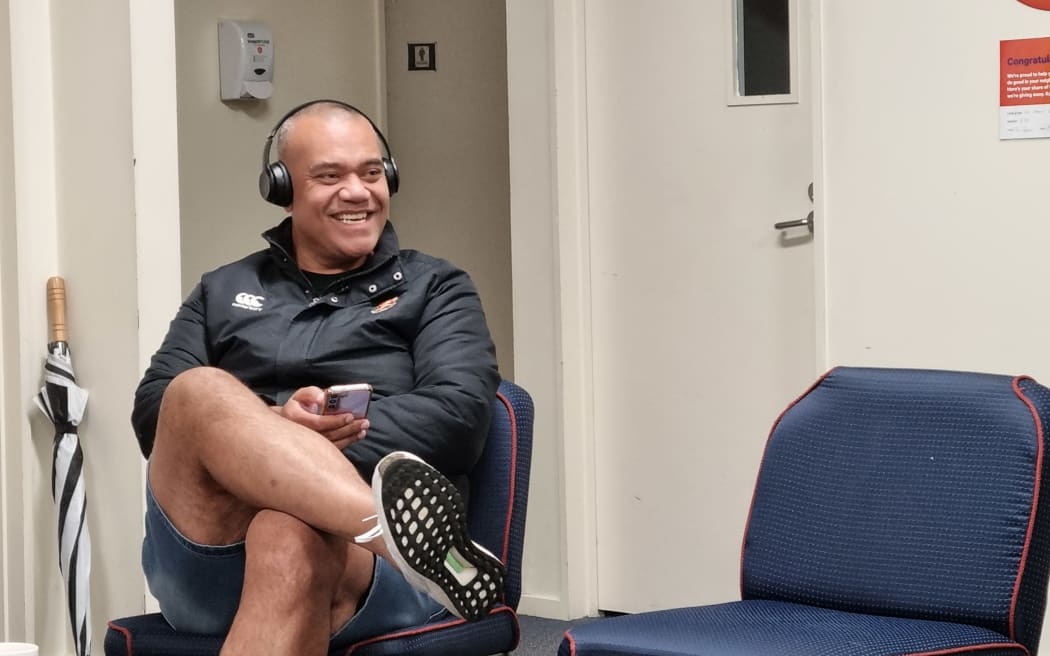The Panmure-Ōtāhuhu electorate, previously known as Manukau East, has long been a Labour stronghold.
Labour MP Jenny Salesa has held the seat for three terms and has her eyes on a fourth.
But she has found competition in this year's campaign, against former Auckland councillor and mayoral candidate Efeso Collins who is standing for the Greens.
And National's new candidate said it was not a given the seat will still be red come 14 October.

Photo: RNZ / Tom Taylor
In the Ōtara town centre at the southern end of the electorate, people had pressing concerns ahead of the election - the cost of living, housing, and poverty.
People held a range of views on which party was best equipped to tackle these big issues, but one name kept coming up - Labour.
"I'm nearly 80 and I've seen Labour do things a lot more successfully than National, in all the years that I've been living here in New Zealand," one person said.
Others did not know why they voted Labour.
"There's no reason why; it's just been an ongoing thing, for generations, Labour," another voter said.
Labour support was so ingrained in Panmure-Ōtāhuhu that for some, it was almost unthinkable to vote any other way.
At the last election, incumbent MP Jenny Salesa secured 77 percent of the vote.
National's candidate, in second place, had just 14 percent.
Salesa took Checkpoint on a tour of Ōtara's community centre, where the Pacific groups gathered were staunch Labour voters.

Photo: RNZ / Tom Taylor
"Most of Niueans are Labour, as far as I know," Loine Louisa Tapaotama Lavakula, QSM, said.
It was a similar story at the Cook Islands Creative Arts Mamas group.
"From the first day I got here to New Zealand, I've always been a Labour [voter], to be honest," Tukua Turia, OSM, said.
Salesa did not underestimate the power of appealing to the Pacific community who made up nearly half the electorate's population.
"Whenever there's a rugby or a rugby league game, Tongans congregate or come through to Ōtāhuhu; Ōtāhuhu is called Little Tonga, and you see all the Tongan flags around there," she said.
"But it's not just Ōtāhuhu where Tongans reside; there are Tongans right through the electorate, right through up to Point England."
In her door-knocking so far, she was hearing a clear message: "The number one issue that I'm told is the cost of living."
With more than half the electorate under the age of 30 at the last Census, appealing to young people was also a crucial part of the campaign.
But Salesa acknowledged some new voters may opt for change in the form of Collins.
"The ideal, of course, is two-tick Labour," she said.
"If you do have to choose, and you want to give someone else the vote - especially if you're talking about Efeso Collins - give Collins the tick, but party vote Labour."
It was a complicated rivalry, as Salesa had called Collins a friend since their university days.
"When he was standing for the mayoralty, I was one of his biggest and strongest supporters - not just out door-knocking but financially as well.
"It's disappointing as a friend that he chose another party this time around."
Despite his long history as a Labour member, Collins - a former Manukau ward councillor - said the time was right for him to switch allegiances.
"This is about choosing the team that I believe best represents this community, that's going to best advocate for this community," he said.
"I want greater ambition than what the Labour Party has presented for many years," he said.

Photo: RNZ / Tom Taylor
When Checkpoint visited his volunteer base, Collins was hitting the phones trying to secure his electorate's vote.
After a few answering machines, the first person he got through to did not need any convincing.
For others, however, it would be a harder sell.
Collins was hoping he was a familiar enough face to appeal to voters who might otherwise automatically vote Labour.
"It's needed someone with profile because that means the bridge [from Labour to Green] is trusted, and I've established long, enduring relationships in the community, and people trust me."
Up against the experienced politicians in the Labour and Green camps, the National Party was backing newcomer to politics, Navtej Randhawa.
The grocery store owner and radio host said when he was out door-knocking, people told him they were struggling to make ends meet.
"I hardly have conversations in terms of the policies around carbon credits or all the others; it's all just to do with the basics because that is truly what people are looking for - solutions that simply connect to their immediate survival concerns," he said.
Like Collins, he thought young people were starting to have conversations with their Labour-leaning parents about voting for someone else.
"It's not given that they are red seats. I don't believe in that. I think what we need to do is be more relevant and connected to how they feel."
Other candidates for Panmure-Ōtāhuhu included ACT's Antonia Modkova, Vision's Karl Mokaraka, and James Robb of the Workers Now Party.

